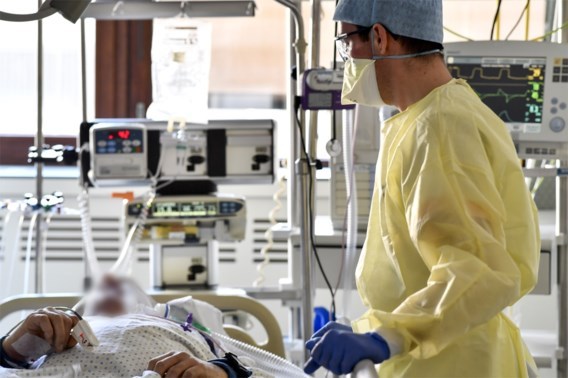Belgium's healthcare system is lauded as one of Europe's best. While other countries have had long waiting lists for patients, there have not been the same long queues here in Belgium. However, the pandemic has changed the situation across the country's healthcare sector, reported De Standard.
The current waiting for patients to get treatment initially seemed related to the pandemic and that it would only be a matter of time before the sector could make up for staff shortages and delayed care.
However, while the waiting lists were intensified due to many patients needing intensive care treatment for Covid-19, they are here for the long run, according to Marcel Van der Auwera, head of the Emergency Medicine and Psychosocial Assistance department at the FPS Public Health.
"Our healthcare system worked optimally for a very long time," said Van der Auwera. "But Covid-19 magnified the problems, making the cracks visible...The only period in which the pressure can be relieved is the summer holidays. But even then there is little breathing room for the staff who continue to work due to the many absences."
A struggling sector
There are several reasons for the long waiting lists, which makes them difficult to solve all at once.
According to a report from Belgium's National Institute for Health and Disability Insurance (NIHDI) from December 2021, it will take two years to catch up with what is needed for essential care. For non essential care, a worst-case scenario would be up to fie years and eight months.
"Another development that increases the pressure and maintains the waiting lists is the expected increase in the demand for care," said Lieve Dhaene, director of communications at health organisation Zorgnet Icuro.
Related News
- Fewer than 3,000 daily Covid-19 infections in Belgium
- Most monkeypox vaccinations across French border given to Belgians
- Increased anxiety and rise in crime: What extreme heat can do to mental health
"The population is ageing quickly. It is also getting older and the increasingly extensive treatment options are contributing to this: in the past people often died from a chronic condition, now they can sometimes live with it for years thanks to advances in medicine."
Half of the population has at least three chronic health conditions. 'That group will grow strongly in the coming years. We expect the peak for care for the elderly from 2030, because the baby boom generation will then be 80-plus and therefore need more care," said Dhaene. adding that "more people are leaving the care profession, while fewer and fewer young people choose that profession.
"If vacancies are not filled and beds remain closed for a long time, care will not simply be postponed, it will shrink," said Dhaene, adding that "so we'll have to learn to wait."
"As patients, we have been spoiled for a long time," said Van der Auwera. "We skip the GP and make an appointment directly with a specialist. Do we need urgent care? Then we go to the emergency. We have to relearn how to go to the GP and use primary care, otherwise certain care processes will be further questioned."
Frank Vandenbroucke (Vooruit), Minister of Health, has also spoken out. "With our new deal for GPs, we want to give them a central role again. We also want quality care at all levels and this requires some reforms, both in general practitioners and hospitals and in other healthcare professions."

